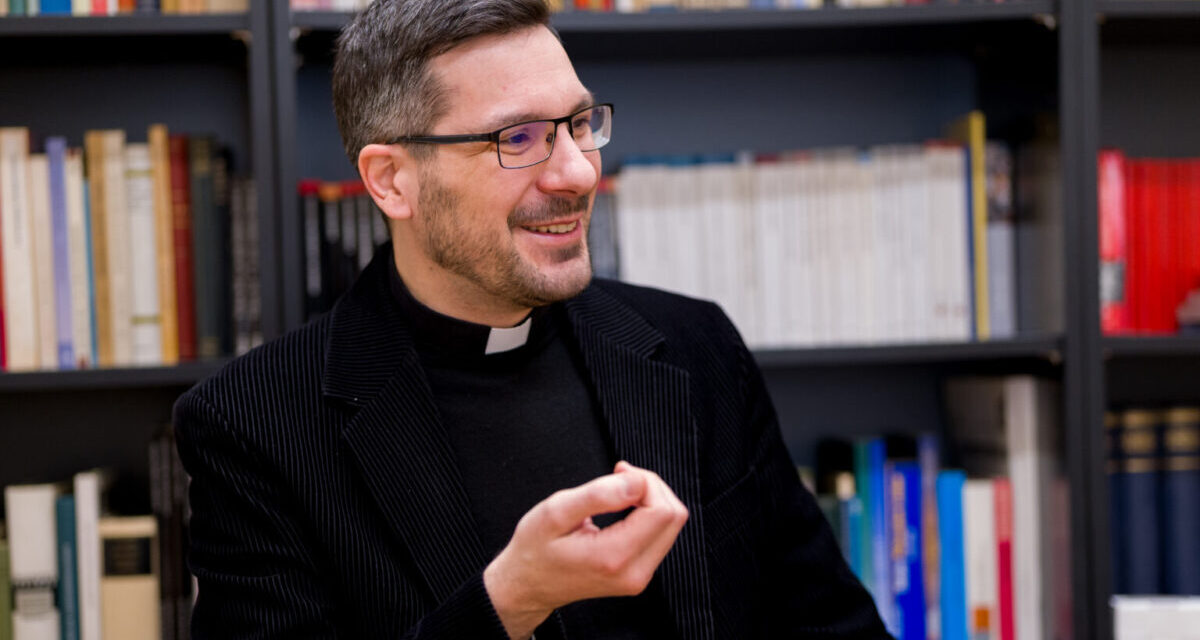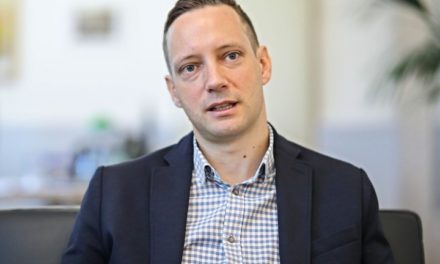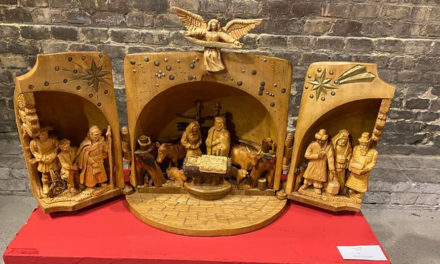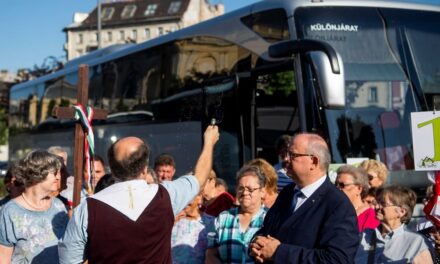For five and a half years, Father László Gájer has been the head of the department at Pázmány Péter Catholic University's Faculty of Religious Studies, which he hopes will increasingly turn into a spiritual workshop in the middle of an individualistic world. The conversation discusses the impact of theology on faith, why he turned to science as a priest, compulsory religious education, the special atmosphere of the university - and the future of the Hungarian church.
We are talking in the building of the Faculty of Religious Studies of Pázmány Péter Catholic University, while for non-believers, faith and science are often opposed to each other, and they even think that faith weakens with the development of science.
In your life, however, the relationship between these two is very closely related; how do you reconcile faith and science?
I think it is a very outdated thesis that faith and science are opposed to each other. There was indeed such a perception in the 19th century, according to the secularization thesis, with the increasing growth of science, faith will no longer be necessary. The 19th century partially reconfirmed this, but the 20th century did not. If someone is more deeply interested in this topic, it is worth reading Charles Taylor's book A Secular Age - he, as a Catholic author, examines why this idea failed. At the same time, this does not mean that secularization is not increasing - while we also see resecularization processes. As we move forward, our understanding also increases, yet Sócrates expresses it precisely: "the more we know, the more we realize that we know nothing". As one gains more and more knowledge, one realizes that one is part of a larger connection. This is not my personal religious belief, but the general experience of today's fragmented and fragmented world.
We don't see the growth of secularization, but the state of science - and faith is next to it.
If faith and science move side by side in parallel, where do they intersect?
We need our faith to not only consist of impressions and feelings, but also to be able to be integrated into some rational system. Christians started claiming this very early on, in fact! What did the very first Christians do? They wrote and wrote and wrote. Text corpora, gospels, were created from these to summarize what happened. After the Holy Scriptures, the second-generation Christians already recorded rules - legislation, liturgical rules: from the 2nd century we know texts of the Holy Mass that are surprisingly similar to today's. Christians had a need to systematize their faith.
At the same time, we often think of faith as an emotional relationship, a deep human desire for God. What impact does theology – as a rational science – have on subjective human faith?
There was a stereotype that "if you come to study theology, you will lose your faith". This was even true of the character of certain teachers who were tough and rational. For example, we only studied critical exegesis in biblical studies, that is, we examined why the given text could not be linked to the author to whom tradition links it, and why the given action could not have happened. Thus, some may rightly have the fear of why they should go to theology if they lose their faith there. At the same time, this generation no longer teaches, those who took their place understood that our human life is integral, in which rationality and intuition, emotion and personality also have a place. If one takes damage, all of them are damaged.
How has your personal faith been influenced by your academic career? Whoever reads your CV can immediately see that you made a serious "alliance" with theology very early on.
I didn't feel good in the seminary, I almost ran away into theology. I really saw the meaning of this one then, that if I had to be there for six years, I would read everything. In the meantime, I completely fell in love, and life gave me the joy of being able to start teaching in the meantime. When I was a first-year priest, a priest told me: "Laci, learn everything here, but then forget it, because you won't need it in the parish." To this day, I still have the sentence and the situation in my head, but over the years it has been completely confirmed how wrong he was. When I entered the parish, I obviously brought the acquired knowledge with me, I was able to use everything from it - now as an ordained priest.
People welcomed with a spectacular thirst that someone would finally explain and explain why what is happening in a more nuanced and professional way, and not just give "announcements, thrusts", which the attic is full of.
I needed this acquired knowledge - obviously I did not start my sermons with Kant's categorical imperative - and people also required this kind of attitude. I often feel that the Hungarian church is poor in thought, even though there is a desire to reveal the deep things to the faithful, since deep in their hearts they also feel that they are not part of a popular superstition, it is about much more than that. I feel it is very important that we try to increase the demands of the faithful in an understandable, yet nuanced way.
To what extent are you alone in this, do you see an effort within the Catholic Church?
We always strive, but we live in a fragmented, fragmented age. There are no big narratives, no plans, I don't see big and coordinated visions. I myself am a private traveler, but my experience with students is very positive. I have been teaching here for five and a half years, developing a work ethic that is based on the fact that it is in the interests of both parties to deepen knowledge, to talk about it, and we can deviate from it to a certain level. I feel that I was able to convey this rational and nuanced vision to the students who were out of my hands.
How does someone who likes to think rationally experience an emotional, emotional relationship with God?
It wobbles - or rather waves. There were times when my rational side came to the fore in my relationship with God, and this was also fully felt in my prayer life: with texts I read, prayer, and rational reflections. But this did not work after a while, because man is not only rational: the human soul is reason, will and instinct. It has rationality, aspiration, will, intuition, desire and emotion - if only one is strong, it is not good, it must be in harmony. In recent years, for me, it has shifted from rationality to intuition, for example to quiet contemplation. Sometimes I find myself reading spiritual texts at the expense of philosophy, but that's okay because now is the time. This turns into an integral human reality, which is why I like working here at the university, because rationality is missing in many places, but it is here, it is the basis - and all the other components can be added to it. For example, there are regular Masses and adoration here in the chapel, together with the students. Johannes Hartl says that this is the culture of Eden, where both beauty and rationality find a home in man. For those who come here, it's a big adventure, and you have to put your personality into it, because you don't get everything ready. He is invited to receive and possibly pass on some Edenic, integral, human culture to others in the future.
The full interview can be read on 777!
Featured image: Csaba Szabó/777












